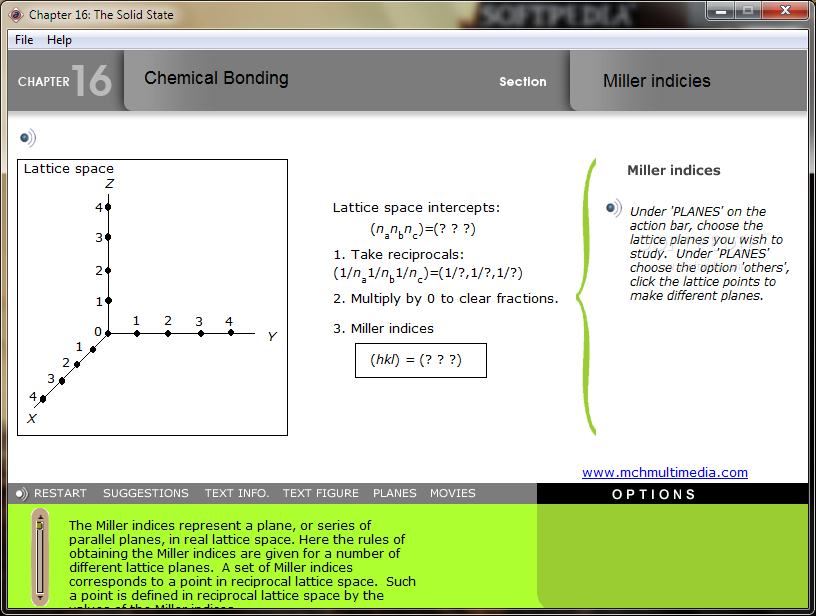-
Lattice Freeware Downloads: Turbocrypt, Lattice For Mac카테고리 없음 2020. 2. 7. 22:46
LaTeX is under the terms of the. LaTeX is distributed through or comes as part of many easily installable and usable or third parties. If you run into trouble, visit the.
Concept Constructor is an open source library containing concept lattice. TurboCrypt is a new very fast Public Key Infrastructure and cryptographic library.
LaTeX is not a stand-alone typesetting program in itself, but document preparation software that runs on top of 's. TeX distributions usually bundle together all the parts needed for a working TeX system and they generally add to this both configuration and maintenance utilities. Nowadays LaTeX, and many of the packages built on it, form an important component of any major TeX distribution. The LaTeX team cannot guarantee that TeX distributions, even recent ones, contain the most recent version of LaTeX. It may happen that you need a more recent LaTeX than the one that your favourite TeX distribution carries, e.g., in order to get a particular bug fix.
Lattice Engines is an integrated cloud-based suite of sales and marketing automation applications that use lead scoring and predictive analytics. Lattice boltzmann code fortran free download. Advanced Simulation Library Advanced Simulation Library (ASL) is a free and open source multiphysics simulation software package.
In that case you will need to fetch LaTeX from CTAN and install it on top of your distribution. See below for details. TeX Distributions If you’re new to TeX and LaTeX or just want an easy installation, get a full TeX distribution. The TeX Users Group (TUG) has a that are entirely, or least primarily, free software. Online LaTeX online services like, and offer the ability to edit, view and download LaTeX files and resulting PDFs.
CTAN You can, which is the primary source of distribution for LaTeX. In order for your downloaded LaTeX to be of any use, you have to obtain and set up a TeX system first.
You can either install a TeX distribution (see above). If you use a TeX distribution then it will include a version of LaTeX so this will probably make things easier for you; but you may have a reason not to do this. The LaTeX Git Repository These days the LaTeX development sources are kept in a GitHub repository (previously we used SVN). Anyone can access it and download the files, but submission is restricted to team members. The repository is located at and from that browser page you may explore the files, clone the repository or download the files in a.zip archive (roughly 25Mb) by using the appropriate buttons. If you are familiar with Git you can also clone the repository using the command line or your favorite Git fontend tool, e.g. Svn co will download all files including their history (back to 2009) and amounts to roughly 1.4Gb so that is quite large.
Lattice Freeware Downloads Turbo Crypt Lattice For Mac
Note: If you had bookmarked the old SVN repository at please update that bookmark to the new GIT repository as the SVN one is frozen and no longer up-to-date and may soon vanish! A note on Git pull requests Git repositories support distributed development and allow people to provide change sets that are made available through so called pull requests, so that the maintainers of a program can “pull the suggested changes” into the main repository. While we appreciate contributions, we think that for the core LaTeX software pull requests are usually not a good approach (unless the change has be already discussed and agreed upon). The stability of LaTeX is very important and this means that changes to the kernel are necessarily very conservative. It also means that a lot of discussion has to happen before any changes are made.

So if you do decide to post a pull request, please bear this in mind: we do appreciate ideas, but cannot always integrate them into the kernel and it is quite likely that we reject updates made in this way. If you want to discuss a possible contribution before (or instead of) making a pull request, we suggest you raise the topic first on or drop a line to the. Historic LaTeX Ulrik Vieth has collected historic versions of LaTeX from LaTeX 2.0 for TeX 1.0 (released on 11 December 1983) onwards. You can find them at.
There might even be some earlier versions. All files have been pulled from the SAILDART archive site at (no longer online) which was based on archive tapes from SAIL at Stanford. More historic material can be found at.